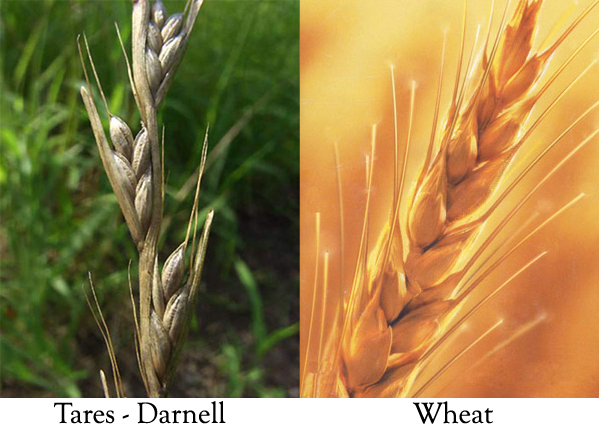Since I've moved to S's church, I've been reading D.James Kennedy's Evangelism Explosion for their evangelistic training class.
In his book, he provided an explanation of the parable of the wheat and tares that is extremely epiphanic. He wrote:
"The church in this world is always a mixed multitude of believers and unbelievers. In the parable of the wheat and tares, Jesus indicated that this condition would continue to the end of time. In the world to come, at the judgment, the distinction will be made. It is interesting that Jesus draws a contrast between wheat and darnel. The darnel looked exactly like a wheat through all stages of growth until the time of harvest. Then it had no "fruit". Perhaps there is the implication here that those who do not bear fruit are not true believers."
I really am no agricultural expert and perhaps listening to this parable in a non-agrarian society means we are unable to appreciate the comparison. This has happened to me before with the parable of the mustard seed (hint: the mustard seed cannot grow into a tree).
I checked up this story on Wikipedia and lo and behold (https://en.wikipedia.org/wiki/Lolium_temulentum)
"Darnel usually grows in the same production zones as wheat and was a serious weed of cultivation until modern sorting machinery enabled darnel seeds to be separated efficiently from seed wheat.[1] The similarity between these two plants is so great that in some regions, darnel is referred to as "false wheat".

Comments